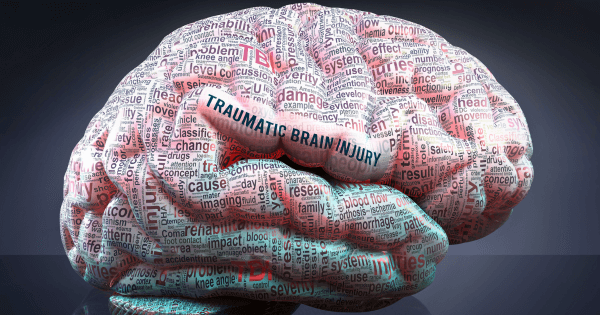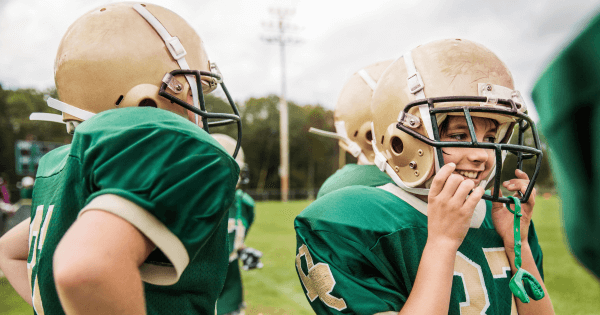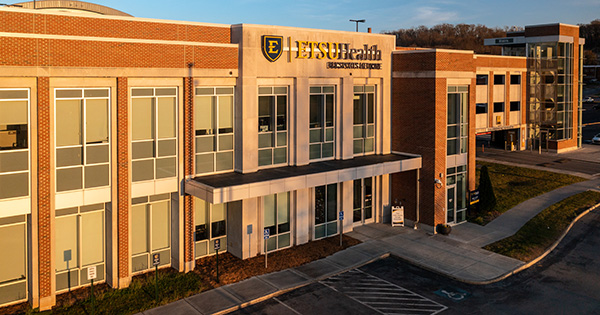For Parents: Sport and Non-Sport Related Concussions in Children
From a Board Certified Sports Medicine Physician
 Concussions are one of the most common injuries in both sport and recreational play.
But how can we better protect our children from returning to play without sustaining
further injury?
Concussions are one of the most common injuries in both sport and recreational play.
But how can we better protect our children from returning to play without sustaining
further injury?
Concussions are categorized as mild traumatic brain injuries (mTBI). However, those with concussions will say that their symptoms are not minor or mild at all, especially at first. For those who fail to report or recognize their symptoms, a repeat hit can dramatically worsen the severity of their symptoms. There is also a risk, although rare, that a single severe concussion or repeat hits very close together could cause severe brain swelling or bleeding that can be fatal.
At a younger age, children are often learning techniques in sports, such as tackling
in football, and can have an increased risk of sustaining a concussion. Sometimes
these are just one-off situations, like when an athlete collides with another or is
accidentally hit in the head with a ball. Regardless, nobody is immune.
The Facts
In the United States, there are an estimated 1-1.8 million concussions a year in children who are less than 18 years old . Approximately 400,000 of these are sport related. It is estimated that 50% of concussions in high school-aged children are related to sports. Recreational sports account for 30%, and school team-based sports account for 20%. The good news is that 80% of those with concussions recover within three weeks. Only 20% experiencing a concussion will take more than three weeks to fully recover and return to play.
Those with a medical history of migraines, motion sickness, learning disabilities or attention-deficit hyperactivity disorders (ADHD), females, and those of a younger age all have an increased risk for concussions and the potential for prolonged recovery. Concussions are not one size fits all, and much has changed in concussion assessment, treatment recommendation, return to learn and return to sport decisions in the last several years. Long gone are the days of sitting in a dark room and not doing anything for days as a means of treatment.
The Signs
 The most common symptom associated with a concussion is a headache. However, there
are 21 symptoms that can be commonly associated with a concussion. Symptoms can vary
widely in severity based on the time from the initial injury and can progressively
change, especially in the first few weeks. Some individuals will develop irritability
and have difficulty concentrating. Kids and young adults in school might notice that
their symptoms become worse when they try to read or complete assignments. Sometimes,
early exercise makes symptoms worse, which can be common when a child hides their
symptoms in an attempt to return to their sport quicker.
The most common symptom associated with a concussion is a headache. However, there
are 21 symptoms that can be commonly associated with a concussion. Symptoms can vary
widely in severity based on the time from the initial injury and can progressively
change, especially in the first few weeks. Some individuals will develop irritability
and have difficulty concentrating. Kids and young adults in school might notice that
their symptoms become worse when they try to read or complete assignments. Sometimes,
early exercise makes symptoms worse, which can be common when a child hides their
symptoms in an attempt to return to their sport quicker.
Athletes that don't report or recognize the symptoms and continue to play are not
only at risk for worsening symptoms or injury, but also are at risk for sustaining
other injuries, such as misunderstanding a play and suffering a subsequent collision
or joint injury because of their altered balance.
- Headache with nausea
- Photosensitivity
- Immediate dizziness
These simple symptoms have been shown to be a predictor of longer than normal recovery times. Additionally, children and adolescents often have problems with worsening symptoms and difficulty concentrating, especially on computers with prolonged screen time. Mood changes and anxiety are other symptoms to keep an eye out for.
The Effects
 Children with numerous concussions, especially if they are mismanaged, can have prolonged
symptoms and recovery. Sports medicine physicians keep track of the number of concussions
during the sports season. Those who experience multiple concussions in a single season
may have a prolonged delay before they return to their sport or get held out for the
rest of the season for protection.
Children with numerous concussions, especially if they are mismanaged, can have prolonged
symptoms and recovery. Sports medicine physicians keep track of the number of concussions
during the sports season. Those who experience multiple concussions in a single season
may have a prolonged delay before they return to their sport or get held out for the
rest of the season for protection.
What To Do
Parents who think their child might have a concussion should have them seen by a physician who has experience with concussion assessment and diagnosis as well as identifying concussion profiles. This can help to maximize treatment and rehabilitation. Often concussions are managed with time, graded activity, and recommendations on diet, eye and mental strain, and more.
Examples of concussion profiles:
- Vestibular (Balance)
- Cervical (Neck)
- Anxiety
Trained physicians address each profile differently. This can result in early referrals for treatments such as rehabilitation, physical therapy or medication management. Early identification of symptoms can often result in faster resolution and a safe return to their sport. Children with concussions should be held from any contact sport or things that are likely to result in a repeat injury. They should only return after receiving clearance from a medical physician.
Searching for a trustworthy sports medicine physician who will place the care and well-being of your child above all?
